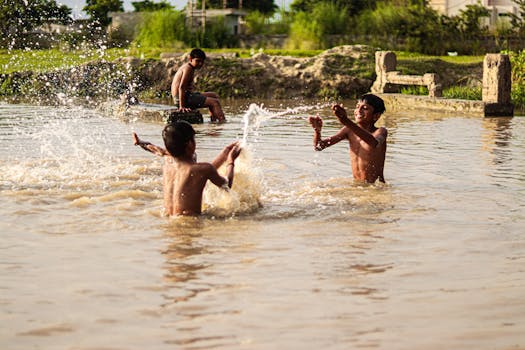The Impact of Climate Change on Global Ecosystems
Introduction to Climate Change
Climate change, also known as global warming, refers to the long-term rise in the average surface temperature of the Earth due to the increasing levels of greenhouse gases in the atmosphere. These gases, such as carbon dioxide, methane, and water vapor, trap heat from the sun, leading to a warming effect on the planet. The impact of climate change on global ecosystems is a pressing concern that affects us all. Rising temperatures, sea-level rise, and extreme weather events are altering the delicate balance of our planet’s ecosystems, putting countless species at risk of extinction.
Effects of Climate Change on Ecosystems
Climate change is having a profound impact on ecosystems around the world. Rising temperatures are altering the distribution and abundance of plants and animals, disrupts the delicate balance of ecosystems, and can lead to the loss of biodiversity. Some of the effects of climate change on ecosystems include:
- Rising Sea Levels: Sea-level rise is causing coastal erosion, flooding, and saltwater intrusion into freshwater sources, threatening the habitats of countless species.
- Changes in Precipitation Patterns: Changes in precipitation patterns are altering the distribution and abundance of plants and animals, and can lead to droughts and floods.
- Increased Frequency and Severity of Extreme Weather Events: Climate change is leading to an increase in the frequency and severity of extreme weather events, such as hurricanes, wildfires, and heatwaves.
Consequences of Climate Change on Human Societies
The impact of climate change on global ecosystems is not just an environmental issue, but also a human rights issue. Climate change is having a significant impact on human societies, particularly in vulnerable communities. Some of the consequences of climate change on human societies include:
- Food Insecurity: Climate change is altering the distribution and abundance of crops, leading to food insecurity and malnutrition.
- Water Scarcity: Changes in precipitation patterns and increased evaporation due to warmer temperatures are leading to water scarcity, affecting human consumption, agriculture, and industry.
- Human Migration and Conflict: Climate change is leading to human migration and conflict, as people are forced to leave their homes due to rising sea levels, droughts, and other extreme weather events.
Conclusion
In conclusion, the impact of climate change on global ecosystems is a pressing concern that requires immediate attention. Rising temperatures, sea-level rise, and extreme weather events are altering the delicate balance of our planet’s ecosystems, putting countless species at risk of extinction. It is essential that we take action to reduce our carbon footprint, invest in renewable energy, and protect and preserve our natural ecosystems. We must work together to mitigate the effects of climate change and ensure a sustainable future for all.



